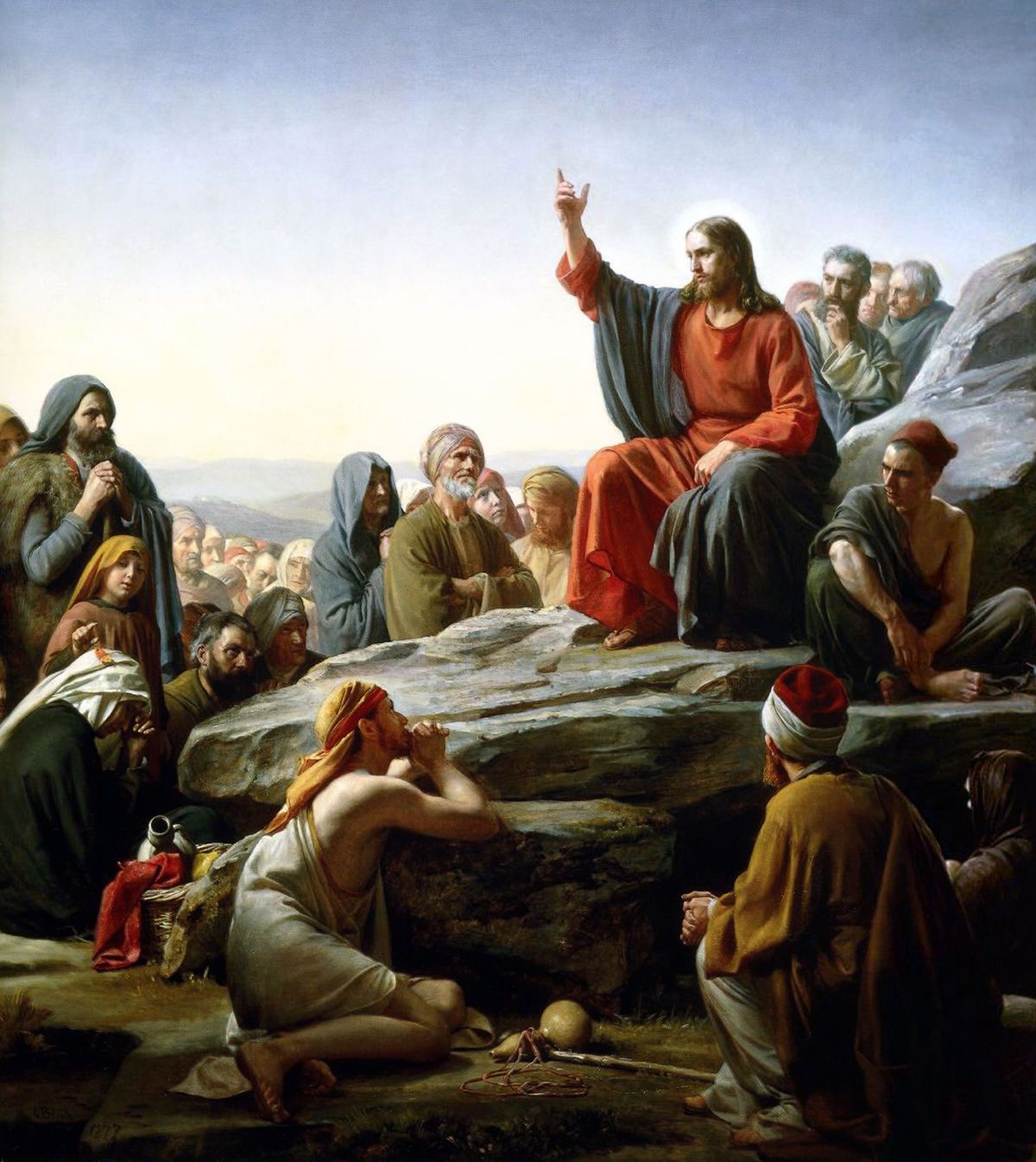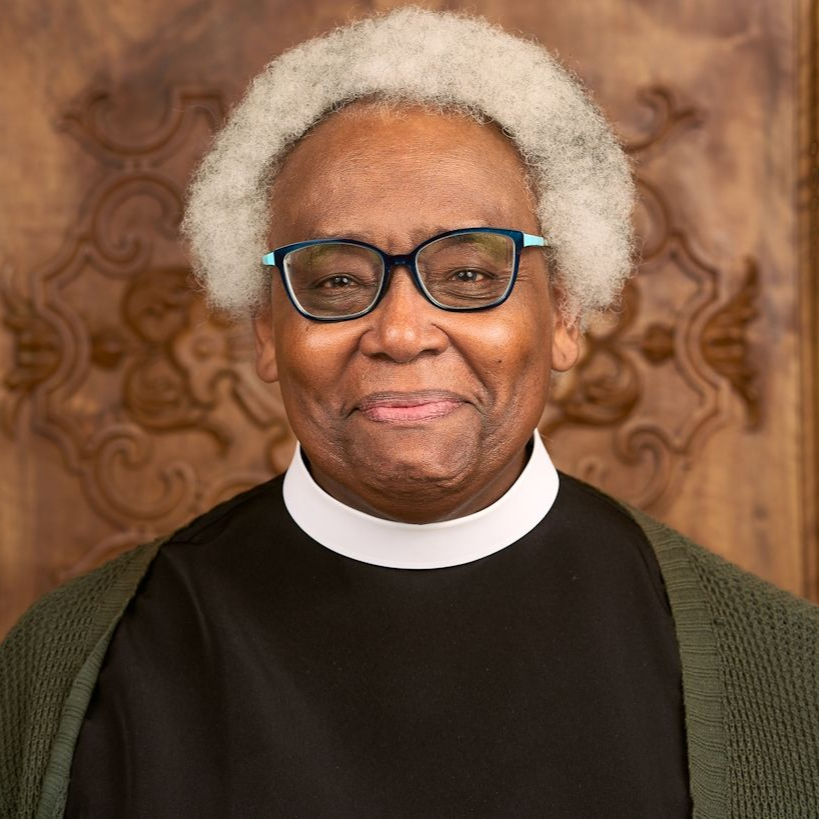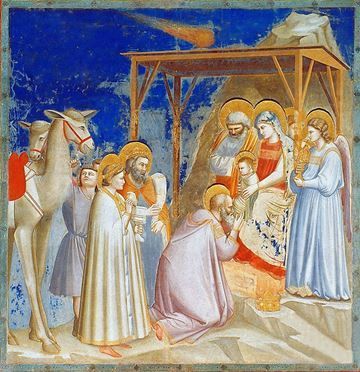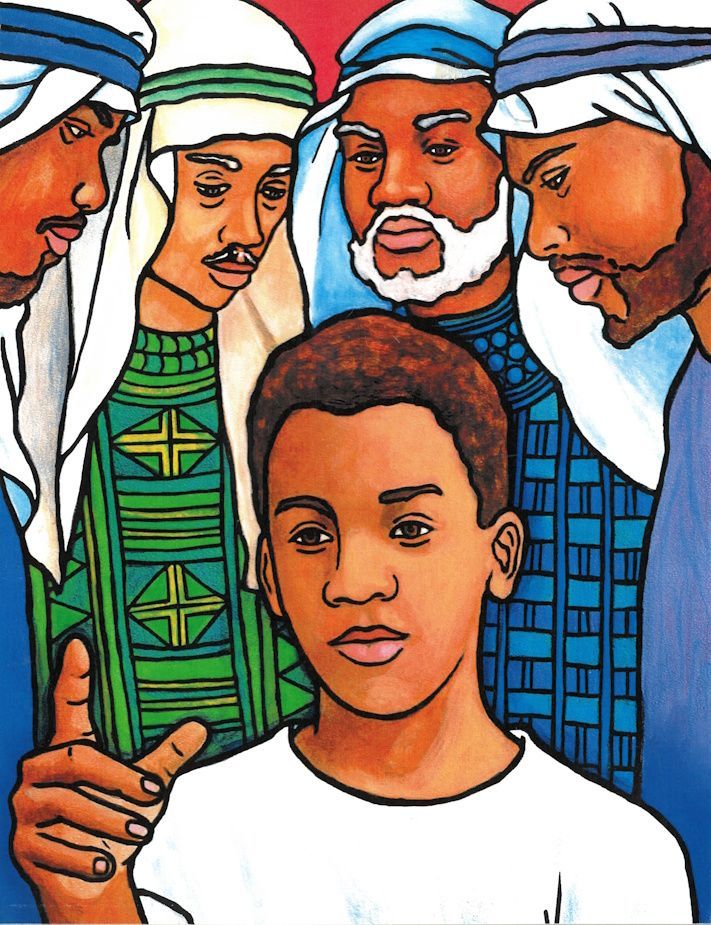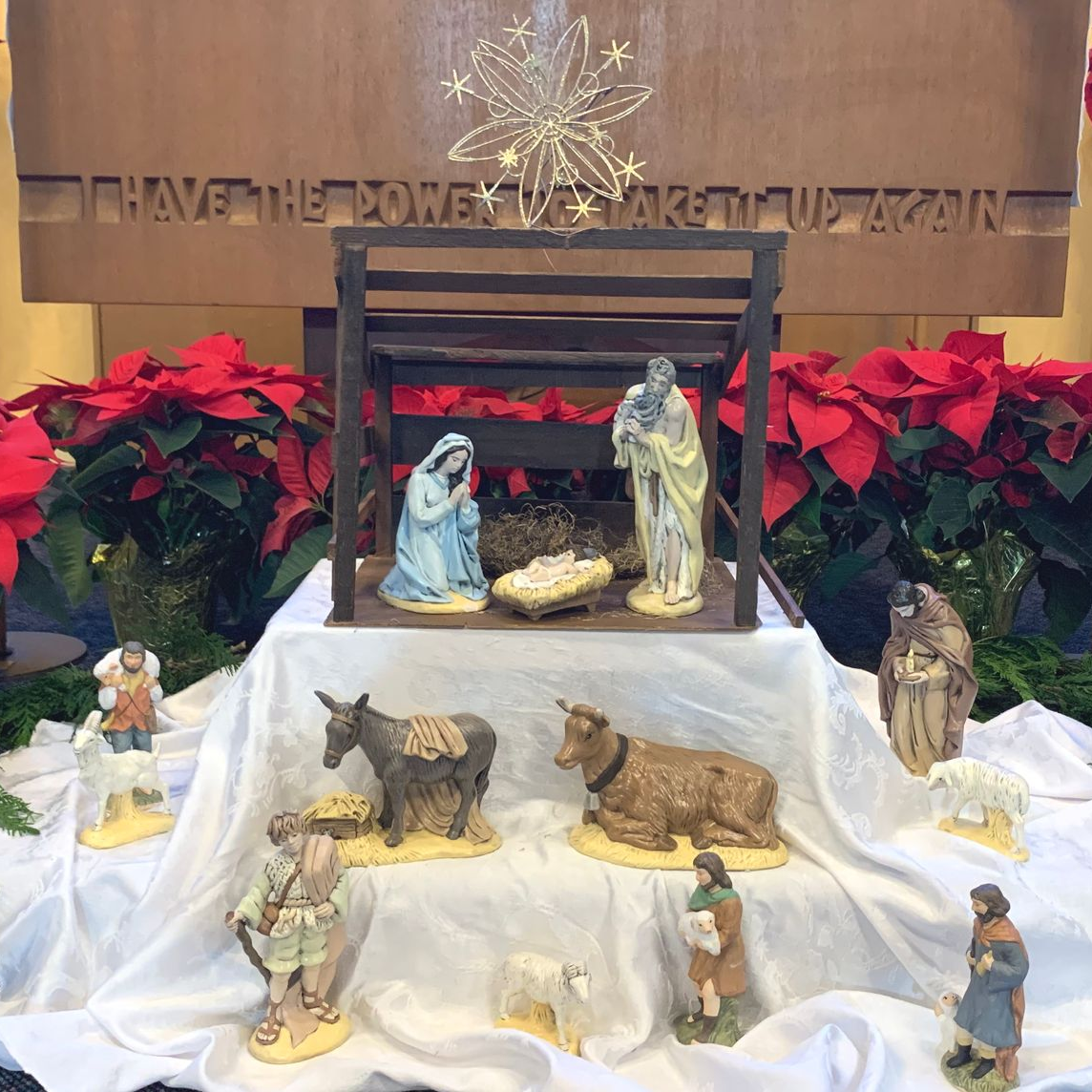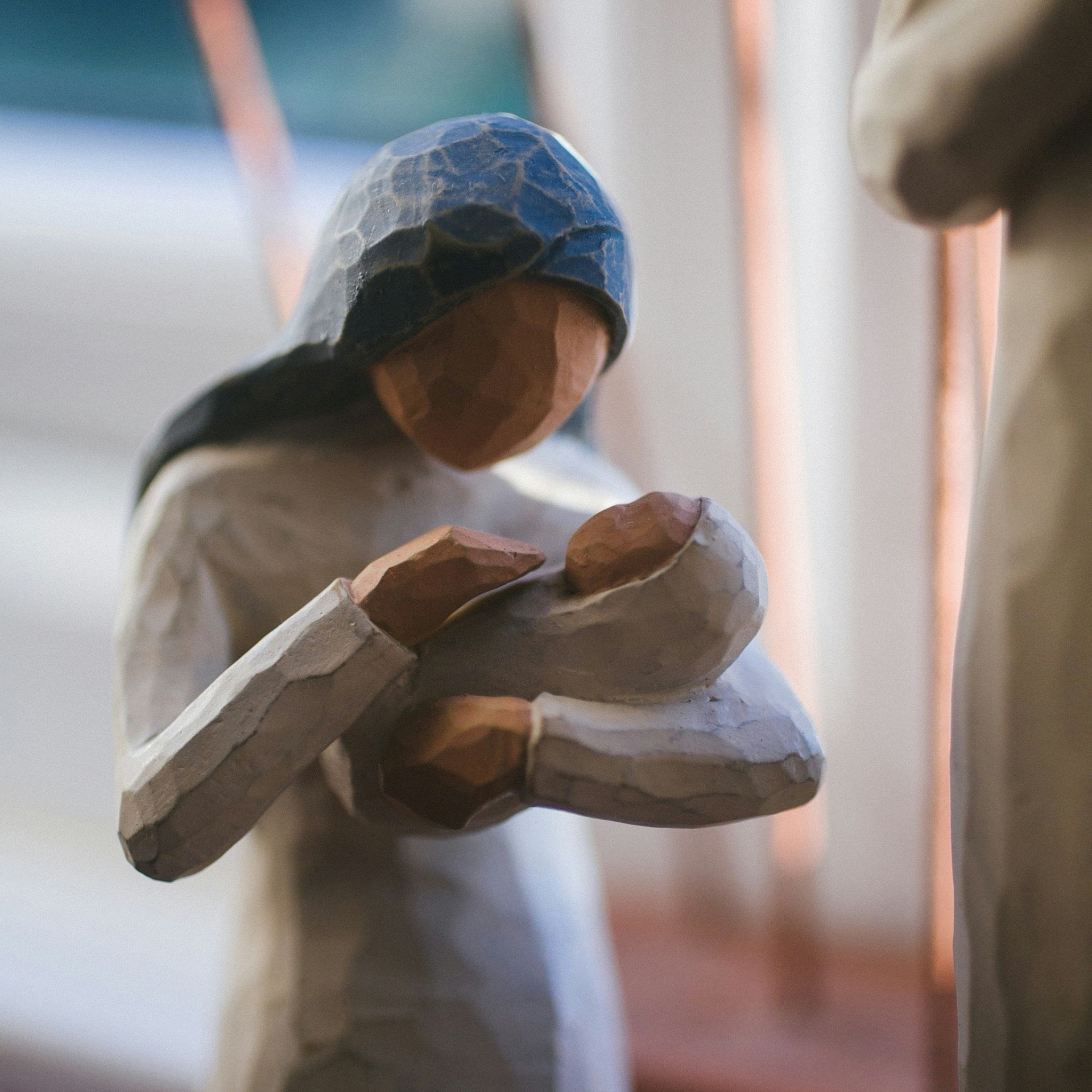The Tongue of a Teacher
"Let’s get clear about what a cross is. A cross is a burden you voluntarily pick up on behalf of another for the love of Jesus Christ."
2024-51
sermon preached at Church of the Good Shepherd, Federal Way, WA
www.goodshepherdfw.org
By the Rev. Josh Hosler, Rector
Seventeenth Sunday after Pentecost (Proper 19B), September 15, 2024
Isaiah 50:4-9a ;
Psalm 116:1-8 ;
James 3:1-12 ;
Mark 8:27-38
I grew up in two small towns—Rupert, Idaho and St. Ignace, Michigan—each containing only a few thousand people. Then I got my music degree from Olivet College, a liberal arts school with fewer than 800 students.
Did I have fewer opportunities than other young people? Yes, in some ways. But here’s the thing: I had many, many good teachers. I had some who weren’t good, of course. And sometimes the good and bad teachers were the same people—because, of course, people are complicated!
The good teachers were the ones who noticed my natural love of learning and went out of their way to nurture it. But the best teachers were the ones who noticed other kids’ lack of interest or motivation and kept making space for them, hanging in there with children whose lives at home were difficult, against whom the deck was already stacked. The best teachers drew things out of the other kids that they didn’t have to work hard to draw out of me.
Even the very best teachers cannot save every child from their circumstances. But sometimes they do encounter situations where, as Isaiah puts it, they can “sustain the weary with a word.” My mind goes first to teachers who meet a sad or angry child in their sadness or anger and lend a gentle, listening ear. But the best teachers also learn when to say the difficult thing—when to take the child to task and not let them off the hook. The best teachers are not only nice, not only kind, not only encouraging. The best teachers are often the tough ones. And this was certainly true for me in the small towns where I grew up.
(As an aside, thank you, Miss Schacht, for taking my thesis statement to pieces multiple times before you would let me go any further with my senior term paper!)
In their native Aramaic, Jesus’ disciples called him “Rabbouni,” which means “My teacher.” Jesus was their Sensei, training their bodies, minds, and souls to live in God’s world. His was sometimes a vigorous and punishing program. His dojo never stayed in one place—they were always moving, always growing, and if I may mix metaphors liberally, they were always having to hustle on the court, always having to hit a new kind of curve ball. Then, when practice time was over, they would feast joyously, but even the feasts could turn into teaching moments.
How did Jesus get to be such a gifted teacher? He listened before he spoke. He went off by himself to spend time in silence with God the Father, and he did this even when it inconvenienced everyone else around him. Then, when new people came into his life, he looked at them and listened to them attentively. He drew out of his students the gifts God had given them—gifts that could be used in the service of God’s love for all of us.
Now, teaching is one of my core duties as a priest. But I’m the kind of person who sometimes speaks before thinking. Sometimes I overshare. I could never be a politician; most of the time I see no reason to hold back my excitement, and I’m only so-so at holding back my indignation. I can lavish love and praise on people. But I also need to keep reminding myself that if I curse any human being, I am cursing someone made in the image of God.
This is why we read in the Letter of James that not many should become teachers—because teachers’ words are influential enough to require being held to a very high standard. I find James’s words both profound and terrifying. Just imagine—no, we don’t have to imagine because we know—what tremendous damage our tongues can do!
So some of the best teachers do more listening and questioning than lecturing or pontificating. It is a blessed path to listen to someone you are certain is wrong, and not to be quick to correct them. It is good to ask open, honest, vulnerable questions, even when we think we already know the answers. Sometimes people and situations surprise us. And those of us who are teachers find that we have much to learn from our students.
Let’s face it: all of us are teachers of something, whether we want to be or not. At the very least, we teach others how to react to us. We can do this with great self-awareness or with very little—and the consequences will vary greatly depending on that.
Look at Peter. He speaks, but then he won’t listen. Peter proclaims that the Messiah’s revolution is coming, which is true. Then he fails to listen to what the Messiah himself says that will look like. And though his first words had won praise from Jesus, his next words earn condemnation. To say satanic things means to say things with willfully limited perspective—to speak from a place of fear and retrenchment. We can choose instead to speak from a place of abundance and hope—a place that may be full of uncertainty but does not lack for clarity of vision.
How’s this for clarity of vision? If you’re going to listen to and heed the words of God from the mouth of Jesus, you must be prepared to lose everything.
On Friday I attended a lunch and conversation for all the clergy of our diocese, with Presiding Bishop Michael Curry. A priest asked him, “What are some of the idols of our day that get in the way of the church’s work?” Bishop Curry’s answer was, “Survival. Survival is an idol.” Bishop Curry was, in that moment, a teacher getting tough with his students—students in an aging, shrinking, anxious Episcopal Church. Why should any Christian church be afraid of dying?
For indeed, Jesus says: “Take up your cross and follow me. Those who lose their life will save it. For what will it profit them to gain the whole world and forfeit their life?”
But what does it mean to take up your cross? Certainly not what it has come to mean in casual conversation. You know the phrase: “I guess this is just my cross to bear.”
At the consecration of our new bishop Phil LaBelle yesterday, the preacher was the Very Rev. Pamela Werntz of Emmanuel Church imn Boston. She related a story about the Rt. Rev. Barbara Harris, who was the first woman bishop in the Episcopal Church. The bishop was in a small group discussion with aspiring seminarians, and a young woman talked about having been mistreated by men because she was a young woman, saying, “I guess that’s my cross to bear.”
The preacher went on: “Suddenly, Bishop Harris grew into her full stature, which you might remember was about nine feet tall when she was impassioned, and she said, ‘Let’s get clear about what a cross is. A cross is a burden you voluntarily pick up on behalf of another for the love of Jesus Christ. It is not something you are born with. It is not something that is put on you and you can’t get out from under. It is a burden you can put down anytime you need to.’ A cross is a burden that you can put down anytime you need to.”
The tongue of a good teacher nurtures and encourages. The tongue of a great teacher gets tough with us. But the tongue of a divine teacher can “sustain the weary with a word.” Even a tough word. A divine teacher can help us students die to what we only thought we knew but were always wrong about. To cling to old, dead ways is to listen to the voice of the Tempter. A divine teacher can teach us to learn, to unlearn, and to relearn—a pattern that will serve us well throughout our lives.
And so we find that Jesus is the one who takes up his cross and bids us follow. Jesus steps between the bully and the victim, to become the victim himself, the suffering servant, the one who both vindicates and is vindicated. Jesus is the one who looks the Tempter in the eye and says, “Come at me, bro!” Jesus is the one who draws the violence away from us, taking it onto himself. He is not suffering what we deserve. He is diluting the sufferings that pile upon us unbidden, so that it becomes impossible for them to destroy our souls.
And so Jesus suffers, and dies, and redeems, because he’s all in with us. Are you all in with Jesus? Are you learning how to take up your cross on behalf of others—the cross that you are free to set down anytime you need to? Are you listening to the voices of your divine teachers—most especially the voice of Jesus?
I want to close with a poem written by one of our own folks. David Leek, who is married to Ania, has been suffering from dementia for years, and recently he was placed in hospice care. He is slipping away from us bit by bit. David doesn’t talk much anymore. But he left Ania this poem called “Listening.”
Listening
By David Leek
Listening is most interesting
When sound is soft
And feeling is tender.
Shouted words and bombastic language
Raise our protective shields
And draw us into rigidity.
Even worse, they trigger animosity
And tempt us then to return the fire
Of anger, insult and refusal.
Tenderness is undefended.
It is open and hopeful.
Tenderness invites connection
By offering empathy, interest and respect.
Tenderness defeats anger
By opening the heart
To the underlying pain
That rage denies and conceals.
Anger offers the hope of victory over another,
So that few may dream vanquishing
What we fear, or do not understand.
But beneath anger is impotence:
The terrible inability to change
What we fear in ourselves,
And others.
Listening comes with maturity.
It brings the understanding
That each of us stands separate,
And each of us longs to believe
That our views, our values, our solutions
Are true and deserve concession, understanding,
Respect and warm consideration.
It is easy to forget
That we have these gifts to offer to others
In each and every moment.
In each and every connection
With each and every being we meet.
Amen.



